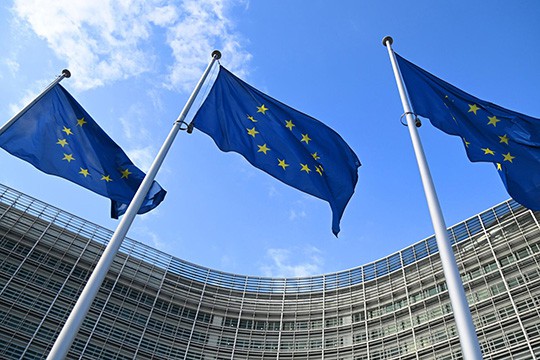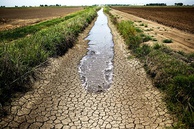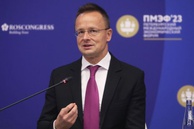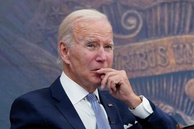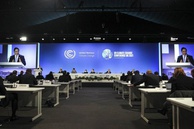The European Union has signaled plans to embark on a new wave of expansion. This could aggravate the already tense relations between its members, given that admission of new members requires painful changes within the Union itself.
On October 6, EU leaders gathered for an informal meeting in Granada, where they focused, among other issues, on expanding the Union to include more members. For the first time in ten years a number of EU officials have announced plans to admit up to 9 countries by 2030. These are Albania, Serbia, four other Western Balkan countries, Ukraine, Moldova, and Georgia. The chances of one more long-running candidate, Turkey, remain vague. Such prospects look, on the one hand, attractive, since, in case of success, the renewed EU will become yet a bigger economic player, and, on the other hand, extremely risky, as they will require the candidates to carry out extensive and painful reforms, while the current members will be required to make substantial political concessions and material sacrifices.
That it is essential to strengthen the institutional foundations of the EU amid the intensifying rivalry between global players became clear a long time ago. The announcements to this effect became ever more pronounced, as Russia and China grew stronger and the USA grew more egoistic. Finally, in December 2019, as she started work as European Commission president, Ursula von der Leyen announced that one of the priority tasks is to «boost the geopolitical role» of the European Union.
It looks like the Covid crisis, which the EU managed to overcome only due to the unprecedented joint financial reaction measures, along with a persistent pressure from Brussels regarding weapons supplies to Ukraine, forced the EU expansion sceptics to reconsider their position. According to The Economist, before the escalation of the Ukrainian conflict the EU experienced «frustration» over the increasing influence of Russia, Turkey, and China in the non-member countries of Europe. Now, it deems their actions as «inadmissible meddling in its backyard». Given this, a potential expansion eastward is just what is necessary to pursue the goal of creating «geopolitical EU» – its territory will increase by 25%, its population – by more than 50 million, and in case Ukraine becomes a member, it will receive vast spaces of agricultural land and huge mineral reserves, including rare metals. Thus, the economic interest is more than visible.
The main political challenge is that an increase in club members from 27 to 36 is possible only on the condition that its inner structure is changed. The union will inevitably have to change the balance of power between its central institutes and its national capitals. For example, it will have to get rid of the unanimous decision taking principle, which enables any one country to veto major initiatives. Discontent over this has been expressed on many occasions before. The requirement in question remains a priority for the “old” members of the European Union and reflects their concern over preserving the integrity of the bloc as it expands to include new members.
The issue of preserving functionality is connected to the risk of developing an institutional paralysis, when the European Council, embracing 36 member states, will have to come to consensus by qualified majority, or at times, by voting unanimously. West Europeans are vitally interested in maintaining their leading position. They include, first of all, France and Germany, which fear a repetition of the 2000s situation, when the first wave of expansion undermined their ability to produce a decisive influence on the EU resolutions.
In January 2023, Paris and Berlin set up an expert group that would devise recommendations on EU institutional reforms. The group, initiated by Germany’s Minister of State for Europe and Climate Anna Lührmann and France’s Minister of State for European Affairs Laurence Boone, released a report in September with recommendations on the institutional and political transformation of the EU should a decision be passed on new expansion.[i]
The Franco-German document proposes a range of amendments to the decision-making procedure in the EU Council, including, in the first place, the relinquishment of the right of individual members to veto decisions and the introduction of a voting procedure in which the decisions are taken by a qualified majority. Such an approach cements the power of major EU countries, most of which represent Western Europe. They have also suggested a number of reforms to the European Parliament and European Commission. Reports by RBC say Chancellor Olaf Scholz has already backed the idea of amending founding treaties the EU is based on in such a manner as to “maintain the traditional influence of Germany and France across Europe intact”.
Such radical ideas triggered a lot of objections and warnings in the run-up to the October 6 summit. Former European Commission President Jose Manuel Barroso has expressed criticism, saying that “EU countries may face differences over proposed reforms in connection with admission of new members, including Ukraine”.[ii]
The proposal of “earliest admission” of Ukraine has caused particularly strong objections. On October 4, Politico reported that “the announcement on the start of talks on Ukraine’s membership in the EU may be made in December”. The resource’s source in diplomatic circles has suggested that “the judicial ruling on the start of a procedure for Kyiv to join the EU “could be adopted by the beginning of 2024”. Earlier this year, European Council Chairman Charles Michel assumed that “Ukraine may become an EU member by 2030”. ”The 2030 threshold” has evoked disputes as such. Von der Leyen insists that the terms for joining the EU should depend on how quickly each candidate harmonizes its legislation to meet the EU standards. European Commission press secretary Arianne Podesta said recently that Michel “……….is exceeding his authority by offering Ukraine…..” such an early prospect of becoming a member of the EU. [iv]
It looks like the arguments on these issues are bound to intensify. Firstly, the admission of new members, particularly Ukraine, may cost the EU “too much” in the literal sense of the word. As The Financial Times reported a few days ago, Ukrainian membership in the European Union may cost member countries “approximately 186 billion euros within seven years”. The edition published this report after it got hold of research carried out on orders from the EU leadership which hinges on “the Union’s budget regulations for 2021–2027”. Should all nine candidates join the EU, the process in question will cost the Union budget nearly 260 billion euros. ”All member countries will have to pay more but get less from the EU budget”. In addition, many members which are currently no more than recipients will become mere donors”. The most losses in subsidies will be sustained by the Czech Republic, Estonia, Lithuania, Slovenia, Cyprus and Malta”.[vi]
In autumn last year the S&P Global Ratings Agency downshifted the EU’s economic growth forecast and one of the reasons for this is the rising oil and gas prices and the difficulties related to the energy switch. If the pace of the GDP growth fails to hit the previous level, the admission of new members will become yet a more challenging problem. Whether the European Union is able to ensure the expansion in the conditions of economic stagnation is yet to be scrutinized. Undoubtedly, social and economic issues appear far more pressing compared to the admission of new members, particularly since this procedure has turned out to be much more time-consuming than expected. What could speed up the process of considering new candidacies is alleviation of geopolitical tension, which, unfortunately, is nowhere to be seen at the moment.
Secondly, geopolitically, Ukraine is currently a nation with the most numerous among countries of Europe army, oriented at the USA and ties with the pro-American and pro-British members of the EU – Poland and its neighbors. Admission of Ukraine will lead to a wider gap between the East and the West within the EU and will enable Washington and London to make a crucial influence on the EU through countries of Eastern Europe. There are grounds to assume that it’s no accident that according to The Telegraph, the USA and Britain have been lobbying for Kyiv’s early membership in the EU.[vii]
Meanwhile, in his interview with Le Figaro the Director of the Paris-based Institute of International Strategic Relations (IRIS) Pascal Boniface pointed out that “…the European Union with Ukraine as its member will never be able to become a strong international player. It will have to undertake the reconstruction of Ukraine, which makes its decision-making process dependent on Washington”. “The EU has made this mistake before, by expanding too fast, which made it strategically inconsistent”.[viii]
All candidate countries reveal grave problems with high-quality government administration and the rule of law. All of them experience, to a greater or lesser extent, problems with corruption, which is acknowledged in the West. Territorial disputes are still raging in Georgia, Kosovo, Moldavia, Serbia and Ukraine. Kosovo statehood has until now been rejected by five EU member countries. Political or inter-ethnic tension is still making itself felt in Bosnia and Montenegro. In many of the above-mentioned countries the political life is extremely volatile, and the voter sentiments are hard to predict.
As the recent victory of Robert Fico’s party in Slovakia demonstrates, the demands that national states should step up control of the activities of European bureaucrats maintain high popularity. Particularly in the east of the EU. Before the pandemic, eastern Europeans feared that all EU centralization projects which major Western European countries are calling for are aimed, first of all, at minimizing the influence of new members on political decision-making. The new wave of strengthening the Eurosceptics’ positions reflects not just “a rise in nationalistic moods” within the EU. The phantom of “Europe of several gears” does not only acquires new power. Such a format is presented as the most competitive in the present-day conditions”.
Meanwhile, the downside of the changes offered by European politicians who dream of “geopolitical success” may be that the political sentiments in the EU may intensify. European voters are more and more concerned over the intention of the European bureaucracy to obtain yet more power, including at the supra-national level, and avoid an increase in responsibility. In the long run, centralization of the European Union leads to a return of political struggle, which many traditional parties of the establishment were beginning to forget about. And rivalry between representatives of various ideologies has been aggravating too.
In the past 10-15 years, the EU’s inability to propose a full-blown crisis management strategy led, in most cases, to the triumph of the policy of half-measures and the lowest common denominator. And now, it looks like the paradigm of reaching consensus has in fact been acknowledged inexpedient “for strategic considerations”. They urge to accept the fact that intergovernmental coalitions within the EU are becoming not just situational – they are becoming more and more spontaneous by nature. However, if that’s the case, the new “common” policy of the EU is becoming ever more factional and “versatile”. And it is becoming ever less controlled, due to a rise in the number of EU members, and consequently, the versatility of political interests across the community. As a result, what seems a more likely process is not the acceleration but the opposite – a further slowdown in the development of both individual member countries and the Union as a whole.
The opinion of the author may not coincide with the position of the Editorial
[i] https://cdn.g4media.ro/wp-content/uploads/2023/09/Raport-Europa-patru-viteze.pdf
[ii] https://www.ft.com/content/8de02993-9713-4350-9bc5-9bd9e8e91b44
[iii] https://www.rbc.ru/politics/24/09/2023/650fdca09a794775d5cf5c39
[iv] https://www.gazeta.ru/politics/news/2023/10/06/21439237.shtml
[v] https://www.rbc.ru/politics/05/10/2023/651e7d2e9a794717117952af
[vi] https://www.rosbalt.ru/world/2023/10/04/1995883.html
[vii] https://www.rbc.ru/politics/08/10/2023/6522d2a89a79479e2d1e69e9
[viii] https://video.lefigaro.fr/figaro/video/ukraine-la-russie-est-elle-isolee-les-explications-de-pascal-boniface/
read more in our Telegram-channel https://t.me/The_International_Affairs

 11:27 16.10.2023 •
11:27 16.10.2023 •
